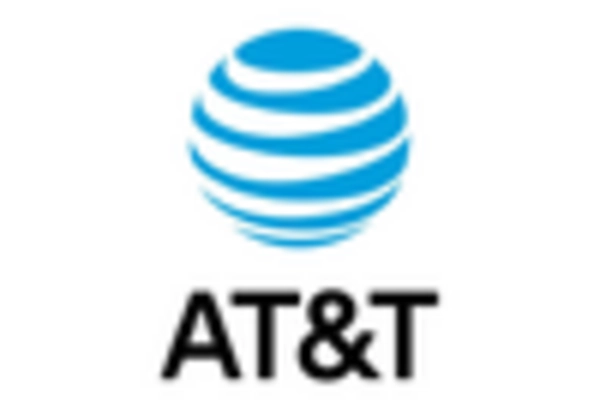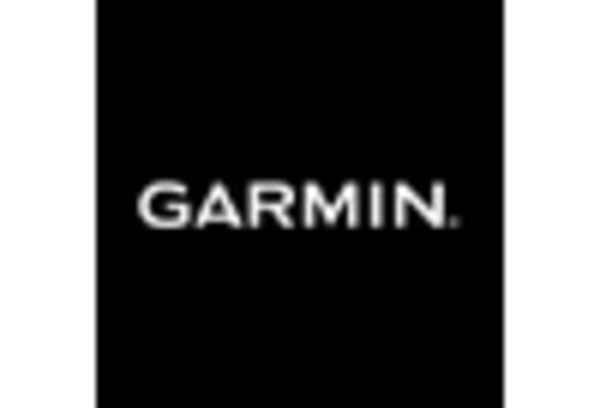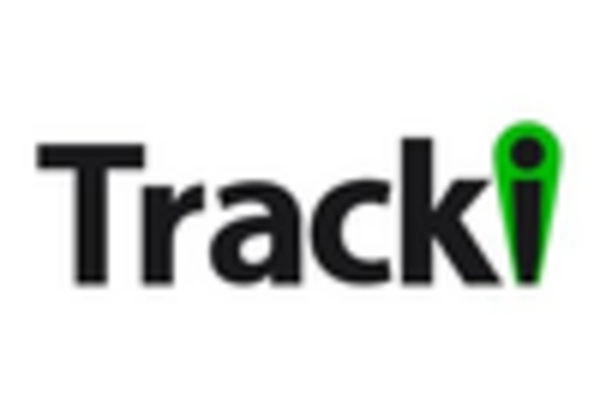Increased Adoption of IoT Devices
The integration of Internet of Things (IoT) devices is significantly influencing the gps tracker market. As IoT technology becomes more prevalent, the demand for connected devices that provide real-time data is on the rise. In the US, it is estimated that the number of IoT devices will reach over 30 billion by 2025, creating a substantial market for gps trackers. These devices enable seamless communication between vehicles and tracking systems, enhancing the accuracy and reliability of location data. Furthermore, the ability to collect and analyze data from multiple sources is likely to drive innovation within the gps tracker market, as companies develop more sophisticated tracking solutions to meet consumer needs.
Growing Concerns Over Vehicle Theft
Concerns regarding vehicle theft are propelling the growth of the gps tracker market. With vehicle theft rates remaining a persistent issue in urban areas, consumers are increasingly seeking solutions to protect their assets. The National Insurance Crime Bureau reported that vehicle thefts in the US have risen by approximately 10% in recent years. This alarming trend has led to a heightened awareness of the benefits of gps tracking systems, which can provide real-time alerts and recovery options in case of theft. As a result, the gps tracker market is likely to see increased adoption among individual consumers and businesses alike, as they prioritize security measures to safeguard their vehicles.
Regulatory Compliance and Safety Standards
Regulatory compliance and safety standards are becoming increasingly important in the gps tracker market. Government regulations aimed at enhancing road safety and reducing accidents are prompting businesses to adopt tracking solutions. For instance, the Federal Motor Carrier Safety Administration has implemented stricter regulations for commercial vehicles, necessitating the use of gps tracking for compliance. This trend is likely to drive growth in the gps tracker market, as companies invest in technologies that not only meet regulatory requirements but also improve overall safety. As businesses strive to adhere to these standards, the demand for reliable and efficient gps tracking systems is expected to rise.
Rising Demand for Fleet Management Solutions
The gps tracker market is experiencing a notable surge in demand for fleet management solutions. Businesses are increasingly recognizing the value of real-time tracking to enhance operational efficiency and reduce costs. According to industry reports, the fleet management sector is projected to grow at a CAGR of approximately 15% over the next five years. This growth is driven by the need for improved logistics, route optimization, and vehicle maintenance. Companies are investing in advanced tracking technologies to monitor vehicle locations, driver behavior, and fuel consumption. As a result, the gps tracker market is likely to benefit from this trend, as more organizations seek to implement comprehensive tracking systems to streamline their operations.
Expansion of E-commerce and Delivery Services
The rapid expansion of e-commerce and delivery services is significantly impacting the gps tracker market. As online shopping continues to grow, logistics companies are increasingly relying on gps tracking to ensure timely deliveries and enhance customer satisfaction. The US e-commerce market is projected to reach $1 trillion by 2025, driving demand for efficient supply chain management. Gps trackers play a crucial role in monitoring delivery vehicles, optimizing routes, and providing customers with real-time updates on their orders. Consequently, the gps tracker market is poised for growth as businesses seek to leverage tracking technologies to improve their operational efficiency and meet consumer expectations.
















